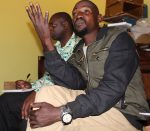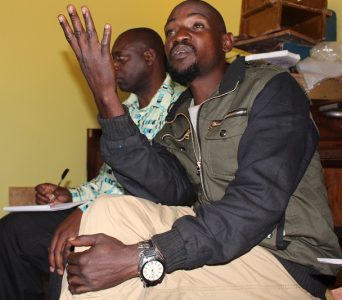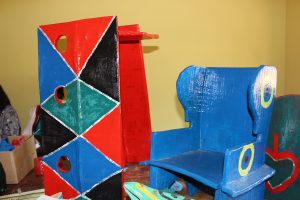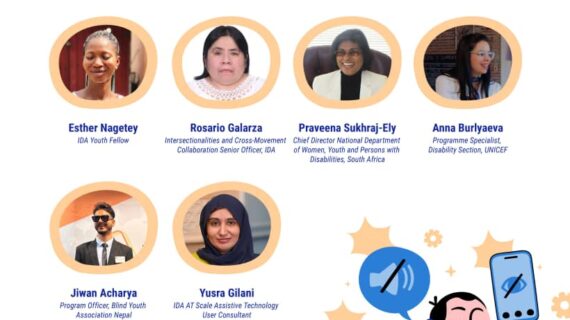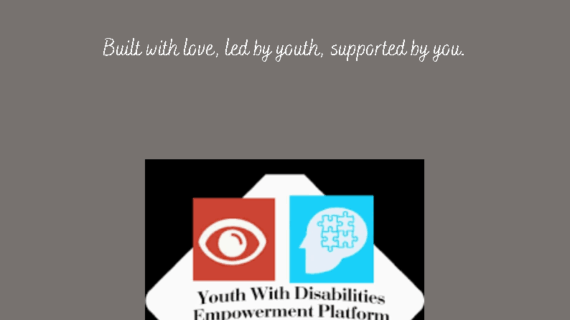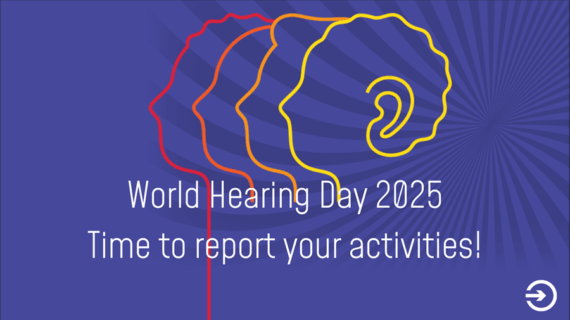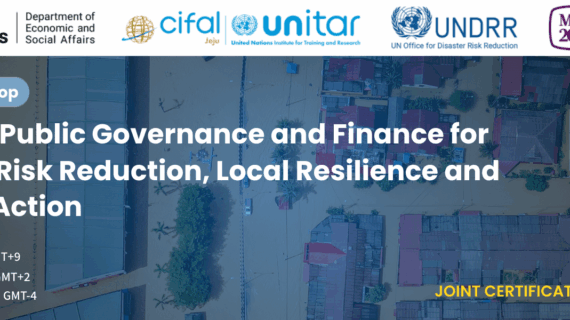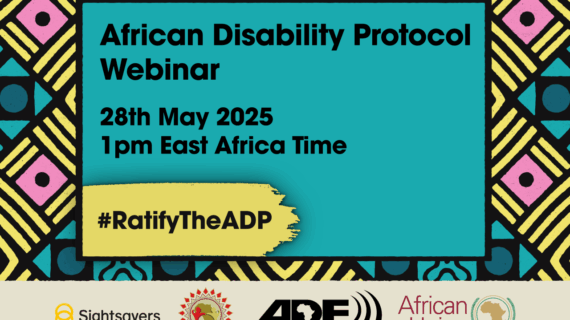Restoring Hope: the benefit of effective CBR initiatives in Zambia
Bruce Mubuyayeta Nasilele, 37, is a resident of Dambwa North in Livingstone, Zambia. He is a member of Zambia Psychosocial Disability Association and Zambia Association for Hydrocephalus and Spinal Bifida.
Nasilele lives with psychosocial disability. He suffered from cerebral malaria and spine problems during childhood and since then, he has had to cope with community stigma and discrimination from his family and community members.
Given his disability, Nasilele could subtly act in compromising ways that at some point landed him in jail for Juvenile delinquency. While in prison, Nasilele received correctional and rehabilitation services from Livingstone Central Hospital. This later turned out to be a turning point in his life. The hospital did not only help him recover, but was able to help him realise his potential.
Nasilele is skilful in making assistive devices such as CP Chairs, corner seats as well as standing frames for children born with disabilities — more so those with cerebral palsy. After fully recovering from mental illness he opted to volunteer his services with Livingstone Central Hospital in the Rehabilitation services department.
On top of the locally available materials such as newspapers, carton boxes and papers that he collected from various offices to make the assistive devices, the hospital administration provided him with a start-up capital. Ever since he embarked on this trade, some of his products are sold to raise upkeep, while the rest are handed over to the hospital for distribution to children born with disabilities.
20 years down the road, Nasilele is not about to regret contributing to the improved lives of fellow persons with disabilities. Besides, making the assistive devices, during his free time Nasilele, provides counselling to persons with psychosocial disabilities.
Nasilele’s motivation is anchored on maximising equity in development for all regardless of one’s condition. “I believe that you must leave a place better than the way you found it,” He said with a smile, “And develop a place from lower to higher levels towards a conducive environment for others.”
His experience supporting persons with disabilities has not only impacted on his character, but has inspired him greatly to engage in sensitising their families and interested CBR stakeholders on the challenges that persons with psychosocial disability face.
Despite everything said above, Nasilele’s life is not far from poverty stricken. From the look of things, the hospital is not about to think of any interventions that might change his financial status, even when he is contributing to the wellbeing of children with cerebral palsy. Neither has he thought of turning his trade into real employment for himself and supply the hospital with the products at a commercial rate.
“I haven’t thought that way, all I can say is that this type of work requires a quiet environment which am enjoying at the moment and good for my concentration and healing process,” Nasilele, adds.
Nevertheless, Nasilele is still happy that he is contributing towards the development of fellow persons with disabilities. From his work he believes he is getting double satisfaction. Firstly, his work helps him to cope with the psychosocial disability because he works under a quiet environment. Secondly, his work helps impact on the children with cerebral palsy, their families and the communities in which they live.
“It is a two-way benefit to myself and to the children. It also changes parents’ attitudes and how the community treats us as persons with disabilities,” emphasised, Nasilele.
One thing Nasilele is sure of is the discrimination of persons with disabilities, which he says is still too much in the community; and unless stakeholders understand that all humans are equal despite their diversity, people like him may continue remaining at the periphery of society. His story is therefore an indication that effective CBR initiatives can have great impact on society.
This article was written by participants of the writing skills workshop held in Livingstone, Zambia – June 2017. Contributors: Julius Nantungapa Simfukwe, Musola Catherine Kaseketi, Mweene Gelasius, Mubila Mubila, Alick Yambayamba, Eckiwe Kamanga, Mutinta Makondo, Margaret Nkhoma, Precious Moonga and Maambo Lemba.

